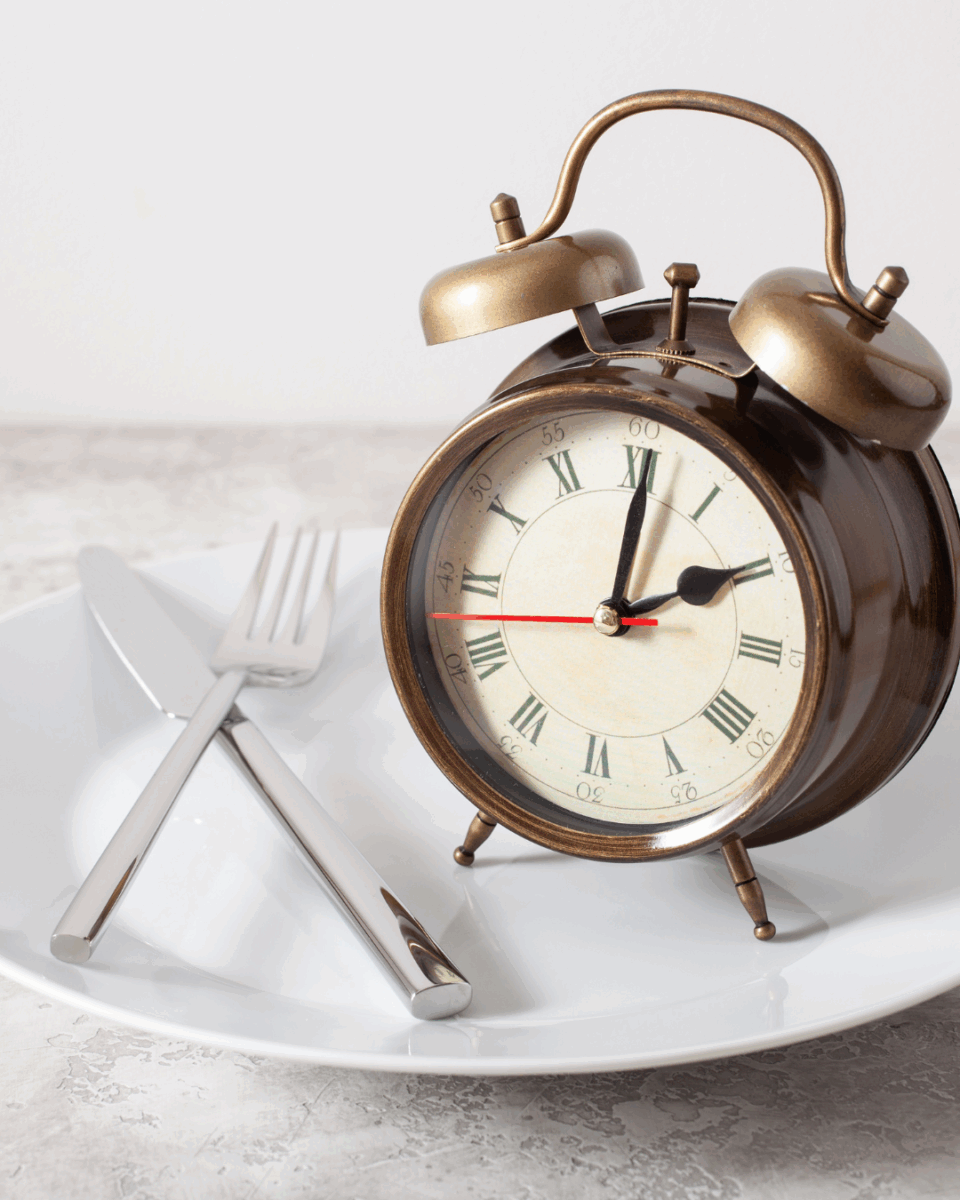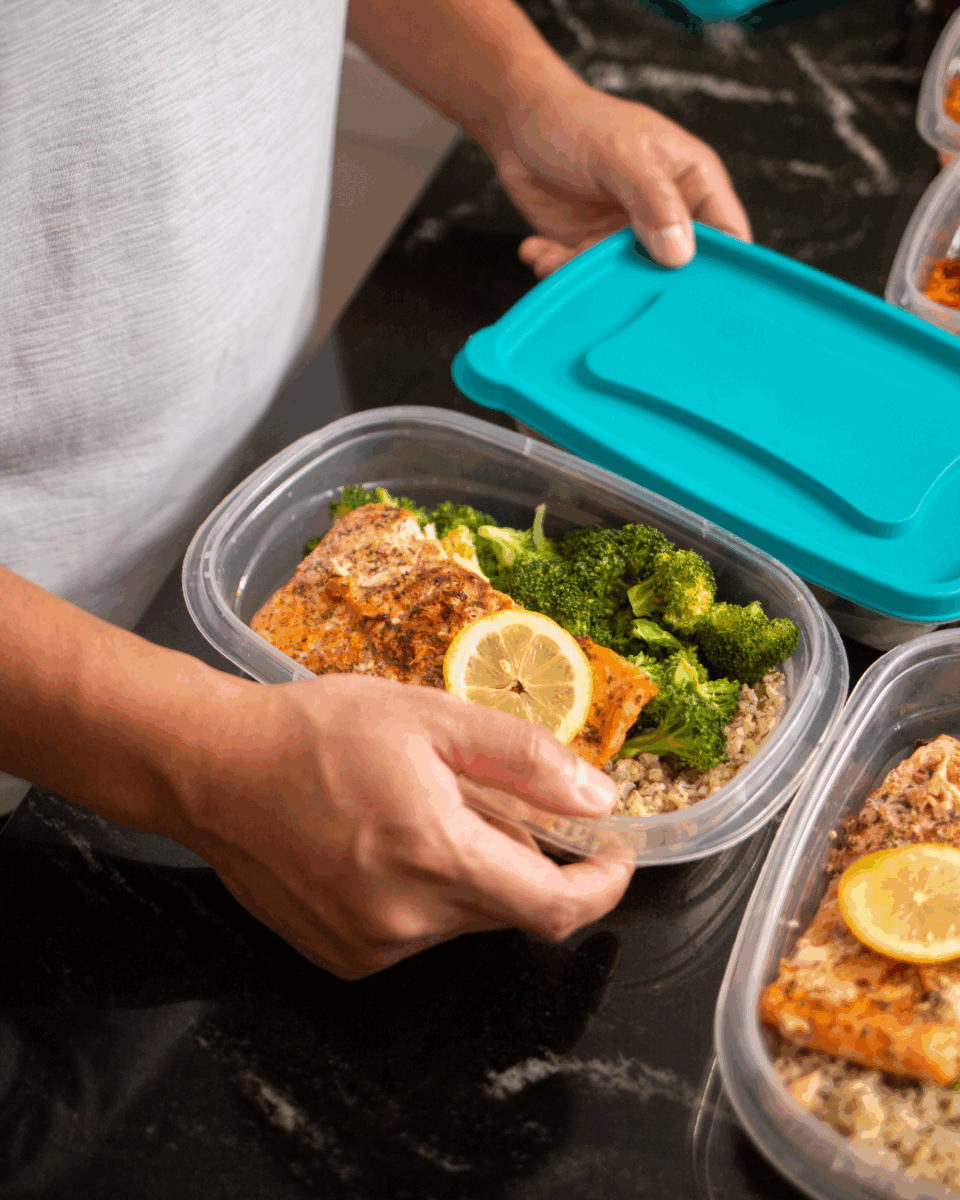
Let’s be honest for a sec, when it comes to losing fat, the way we eat is just as important (if not more important) than the workouts we do. I see this all the time with my clients. They’re training hard, showing up, doing the work, but their nutrition habits are all over the place.
So we start talking food strategy, and two big questions always come up:
“Should I be doing Intermittent Fasting?”
or
“What about eating six small meals a day?”
And my answer?
It depends on you. Your schedule. Your habits. Your goals. Your personality.
But let’s break these two down, in plain language — no fancy science talk, just the real deal.
Intermittent Fasting (aka IF)
Here’s the gist: you eat during a set window, and fast the rest of the time. For example, you might eat between 12 PM and 8 PM, and fast the other 16 hours. Some people go hardcore and fast for 24 to 48 hours at a time, but most stick to daily windows.
What’s cool about it:
- You’re not prepping food every 3 hours — less hassle.
- You usually eat fewer total calories (without thinking about it too much).
- Your body gets a break from constantly digesting, which can help with energy and fat metabolism.
- And let’s be real, skipping breakfast isn’t that hard for some folks.
What’s not-so-cool:
- If you love breakfast, it feels like torture.
- Social events can get awkward (“Oh, sorry I can’t eat — I’m fasting”).
- And some people go ham during their eating window, which can backfire.
- Also, if food is a mental/emotional struggle for you, fasting can trigger obsession or bingeing.

Six Small Meals a Day
Think of this like fueling your body with premium gas all day long — small, clean, balanced meals every 2-3 hours. Your meals are usually prepped ahead, balanced with protein, fiber-rich veggies, and maybe a few carbs early in the day.
Why people love it:
- You never really feel hungry.
- You keep energy levels steady all day (no crashes).
- It’s a favorite among bodybuilders and athletes for a reason — it works.
- It helps preserve muscle while losing fat when paired with a solid workout plan.
Why does it drive people crazy?
- You have to plan. Like, every day.
- You’ll probably start carrying a cooler or lunch bag everywhere.
- Each meal is tiny, so portion control matters.
- There’s not much wiggle room for pizza or donuts.
So Which One’s Better?
Honestly? Both work. I’ve seen people drop body fat with either method. The trick is… both help you eat less without feeling deprived (at least, in theory). It’s about calorie control — plain and simple.
Here’s why both can help you lose fat:
- Meal Timing = Less Mindless Snacking
- Whether fasting or eating every few hours, you’re more intentional about when and how you eat. That awareness helps cut out “random bites” — the stuff that silently stacks calories.
- Meal Content = Cleaner Choices (sometimes)
- The six-meal plan tends to emphasize lean proteins, veggies, and complex carbs — all great for building muscle and burning fat.
- IF? Not so much. Some people eat whatever they want during their window… and that can backfire. Quality still matters.
- Meal Size = Controlled Intake
- Six meals a day force you to watch portions. You can’t just guess — you need a food scale or eyeball skills.
- IF folks can struggle here if they overeat in their window.

So… What Should You Do?
Ask yourself this:
- Can you go several hours without food and still feel okay?
- Or do you get hangry if you skip a meal?
- Do you hate prepping food?
- Or does having structure help you stay on track?
Choose the plan you can stick to. That’s it. Consistency beats perfection. Every. Single. Time.
If eating six small meals sounds impossible for your lifestyle, then Intermittent Fasting might be your jam. But if you love structure, don’t mind meal prep, and like having something to nibble on every few hours, go the small-meals route.
Either way, here’s the deal:
👉 The quality of your food still matters.
👉 Eating less junk = better results.
👉 And whichever plan keeps you consistent — that’s the one that’ll work best.

